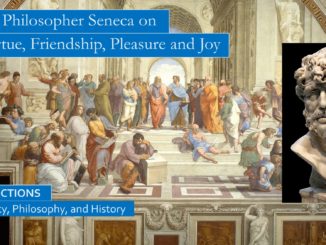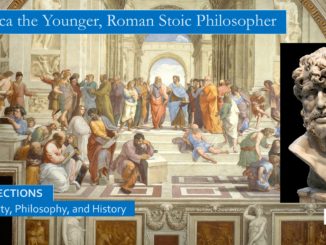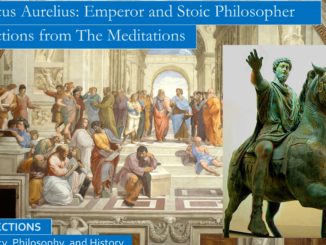
Seneca, Moral Epistles, Blog 7, Precious Stoic Nuggets of Wisdom
Seneca tells us that “we Stoics believe that pleasure is a vice.” Like the Church Fathers, Seneca reminds us that we need to overcome many years past of bad habits with many future years of living a godly life. “We are fettered and weakened by many vices; we have wallowed in them for a long time and it is hard for us to be cleansed.”
Seneca asks, “Why does folly hold us with such an insistent grasp? Primarily because we do not combat our vices strongly enough, we do not struggle towards salvation with all our might, we do not trust and drink in the words of the wise with open hearts,” we are not serious in our struggle against our vices, our efforts at living a godly life are but trifles. […]


